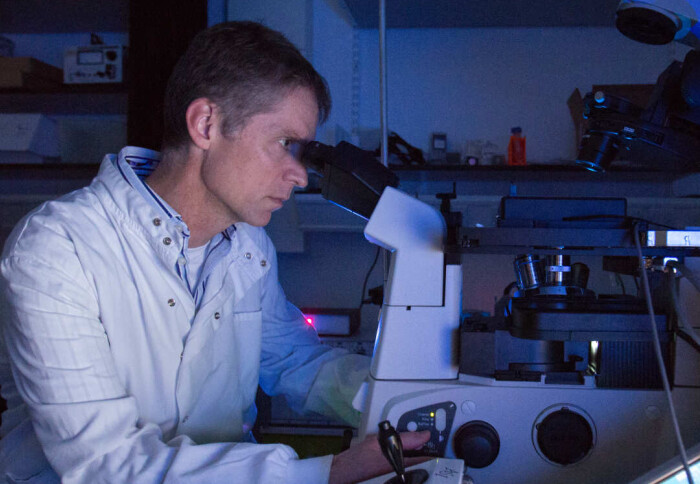Biomarkers for the progression of type 2 diabetes identified

New research carried out as part of the European RHAPSODY project has discovered molecules in diabetic patients that could help personalise treatments
Type 2 diabetes is a progressive multifactorial disease which presently affects over 400m worldwide, with numbers expected to increase to over 700 m by 2045.
RHAPSODY (Risk Assessment and Progression of Diabetes) is a collaborative project involving more than 100 scientists representing 20 academic institutions, including the Department of Metabolism, Digestion and Reproduction’s Professor Guy Rutter, as well as five pharmaceutical companies and two small and medium enterprises.
The study, published in Nature Communications, sheds light on new molecules that could help clinical teams predict and monitor the deterioration of glucose metabolisms.
"In our study, we chose to systematically assay biomarkers for diabetes progression. They belong to three very different molecular classes: small charged molecules (metabolites), lipids and proteins," explains Prof Rutter.
A major technical challenge
Thanks to sophisticated molecular tests carried out on blood samples from 3,000 individuals from three cohorts in Europe and one in the U.S., the scientists were able to discover that some 20 molecules—9 lipids, 3 metabolites and 11 proteins—were associated with rapid disease progression.
Among the 1,300 proteins tested, the protein NogoR stood out from the rest.
To consolidate these findings, Prof Rutter and his team tested the impact of an increase in NogoR blood levels on the metabolism of genetically modified mice.

"By injecting mice fed a high fat/high sugar diet, we improved their glucose tolerance. On db/db mice, a type 2 diabetes mouse model, we worsened their insulin sensitivity, i.e., their ability to regulate blood sugar levels," explained Prof Rutter.
"By shedding light on the signaling pathways and mechanisms involved, we might be able to inhibit this protein that kills the pancreatic cells responsible for insulin secretion, thereby slowing the progression of diabetes."
The CRCHUM researcher and his team are already working on it.
Risk and progression: The same battle
"In our study, we were also surprised to see that the biomarkers for diabetes progression that we identified are the same as those related to diabetes risk. This suggests that the same biological process is operating in both cases," said Prof Rutter.
Sometime in the near future, the researcher would like clinical teams to be able to quickly and inexpensively assay these new biomarkers using a single drop of blood in order to better predict the progression of the disease. To do so, they'll have to wait for a few technological developments.
Identification of biomarkers for glycaemic deterioration in type 2 diabetes. Slieker, R.C., Donnelly, L.A., Akalestou, E. et al. Nat Commun 14, 2533 (2023). https://doi.org/10.1038/s41467-023-38148-7
This article is based on information provided by the University of Montreal.
Article text (excluding photos or graphics) © Imperial College London.
Photos and graphics subject to third party copyright used with permission or © Imperial College London.
Reporter
Benjie Coleman
Department of Surgery & Cancer